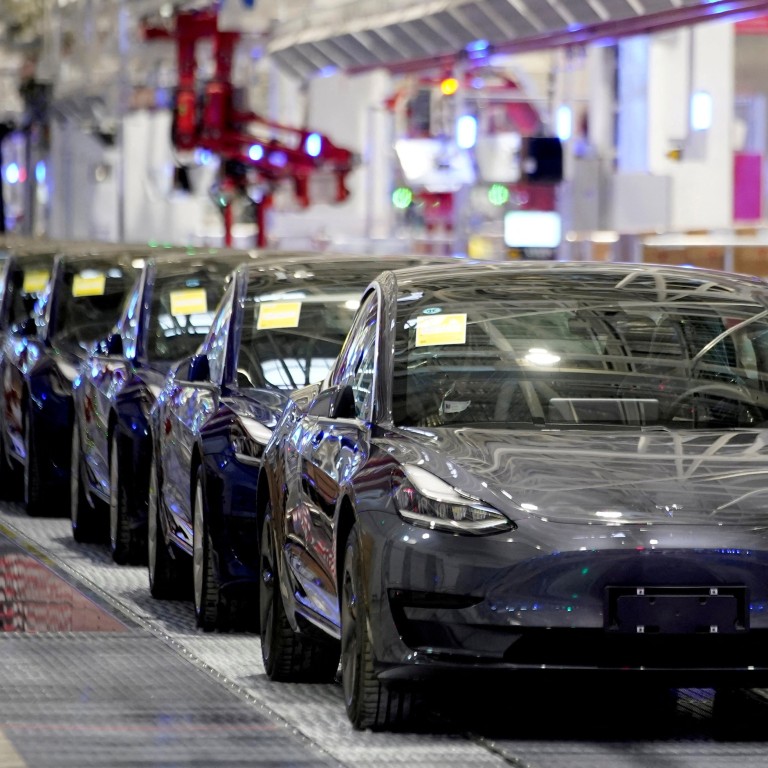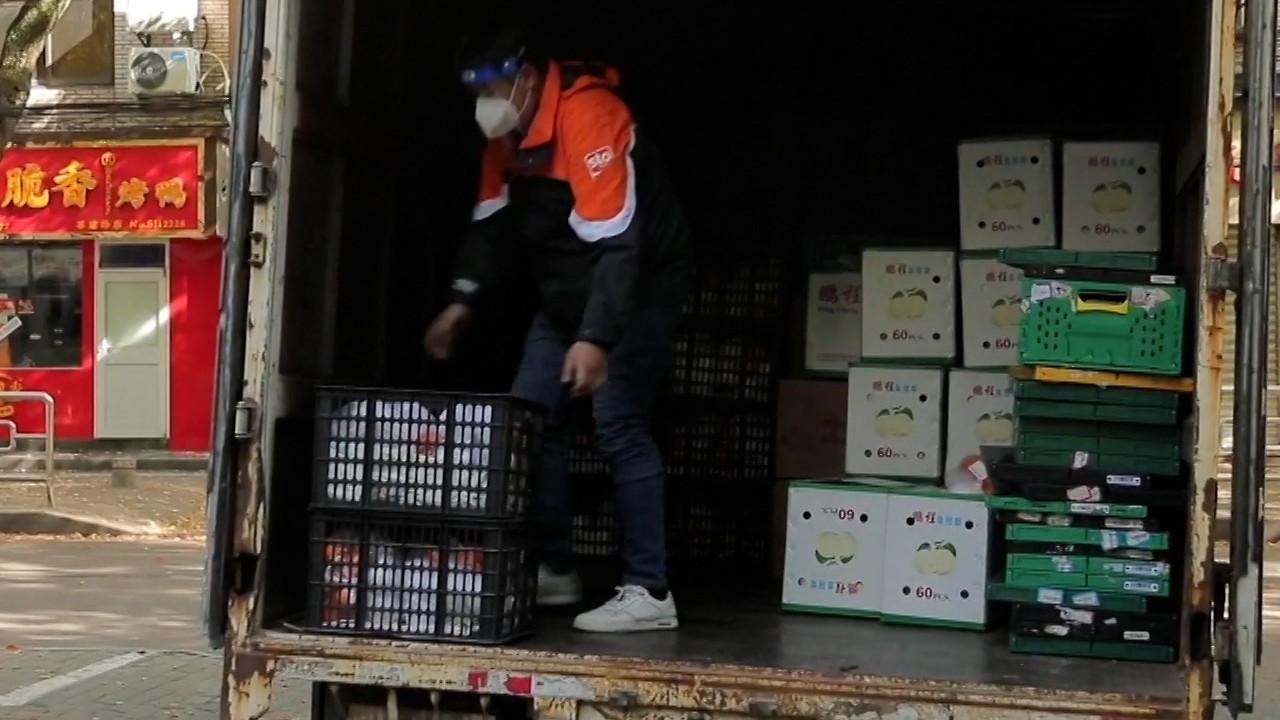
China’s electric car sales face uncertainty as Covid-19 outbreak forces Tesla, Nio to suspend production, after industry bounced back in March
- The country’s EV manufacturers reported sales of 455,000 units last month, up 43.6 per cent from February
- But the turnaround may be short-lived, said analysts, as the Covid-19 pandemic in Shanghai and at some production bases disrupts production
But the turnaround may be short-lived, said analysts, as the Covid-19 pandemic in Shanghai and at some production bases disrupts the supply chain and production.
The figure represented a year-on-year increase of 122.4 per cent.
February’s sales had been hit hard by a shortfall of components and lower demand during the week-long Lunar New Year holiday.
In March, sales of NEVs – a term encapsulating pure electric, plug-in hybrid and fuel-cell cars – made up a quarter of deliveries of new cars in the mainland.
The Chinese tech hub of Shenzhen went into a week-long lockdown in late March while Shanghai, the mainland’s commercial and financial capital, has been in a phased lockdown since March 28.
Tesla’s Gigafactory 3 in Shanghai suspended production on March 28 since it could not secure enough components and protective gear to keep the assembly line running.
The US carmaker, a runaway leader in China’s premium EV segment, sold 65,814 Model 3 and Model Y vehicles on the mainland in March, up 85 per cent on the year, according to the CPCA.
Nio, a Chinese smart-EV builder based in Shanghai, said on Saturday that it had to suspend production because the measures to battle the Omicron variant of the coronavirus had disrupted operations at its suppliers.
Shanghai, the epicentre of China’s latest outbreak, has reported 205,000 cases since March 1. The city has yet to unveil a timetable for lifting the lockdown.
The CPCA forecast in February that NEV sales could hit 5.5 million units in 2022, 84 per cent higher than last year’s 2.99 million, buoyed by a growing penchant for environment-friendly cars among young motorists.
In February, NEV sales dropped 24.1 per cent from a month earlier to 317,000 units, owing to a shortfall of key components and the Lunar New Year holiday that deterred consumers from buying big-ticket items.


